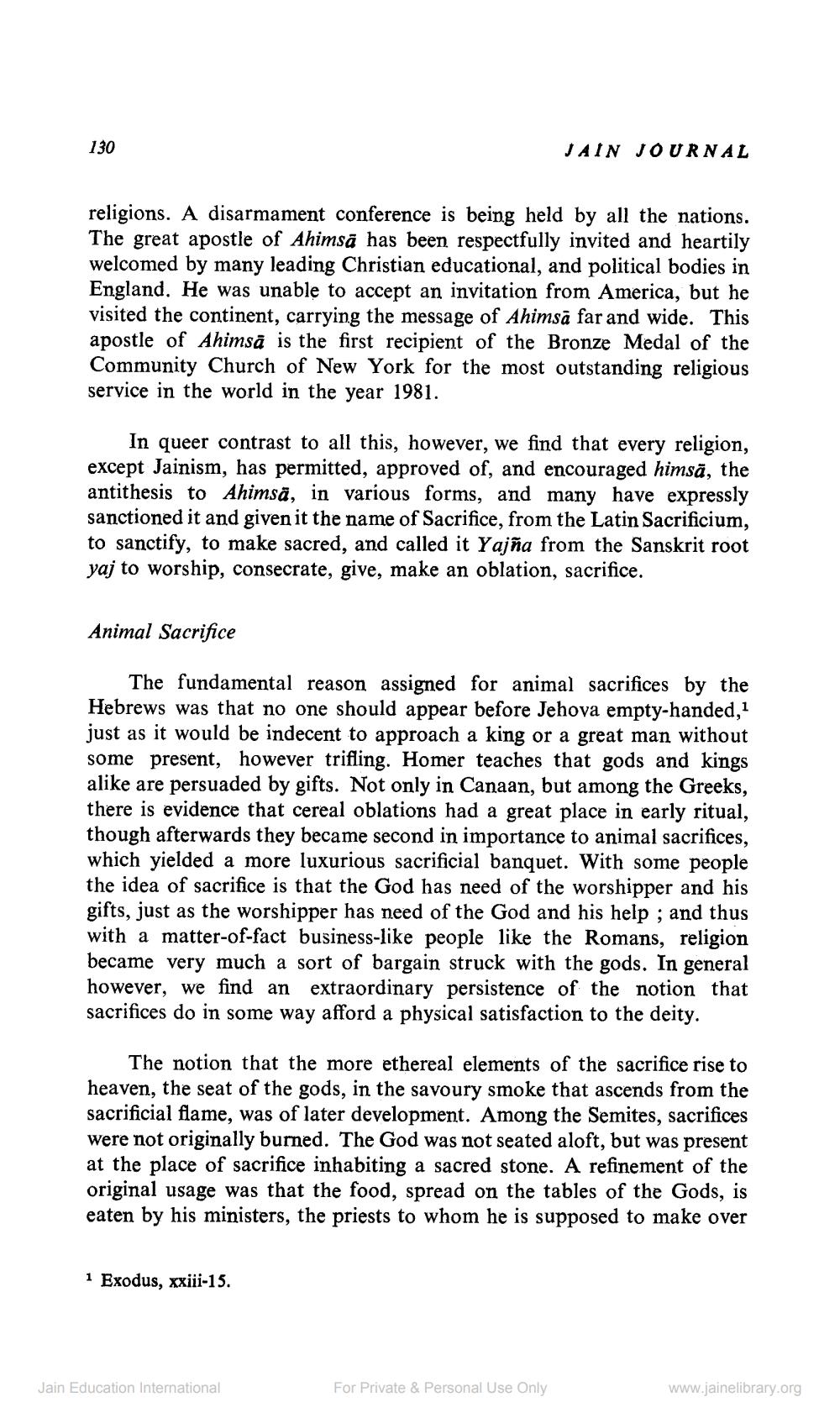________________
130
JAIN JOURNAL
religions. A disarmament conference is being held by all the nations. The great apostle of Ahimsā has been respectfully invited and heartily welcomed by many leading Christian educational, and political bodies in England. He was unable to accept an invitation from America, but he visited the continent, carrying the message of Ahimsä far and wide. This apostle of Ahimsa is the first recipient of the Bronze Medal of the Community Church of New York for the most outstanding religious service in the world in the year 1981.
In queer contrast to all this, however, we find that every religion, except Jainism, has permitted, approved of, and encouraged himsā, the antithesis to Ahimsā, in various forms, and many have expressly sanctioned it and given it the name of Sacrifice, from the Latin Sacrificium, to sanctify, to make sacred, and called it Yajña from the Sanskrit root yaj to worship, consecrate, give, make an oblation, sacrifice.
Animal Sacrifice
The fundamental reason assigned for animal sacrifices by the Hebrews was that no one should appear before Jehova empty-handed, just as it would be indecent to approach a king or a great man without some present, however trifling. Homer teaches that gods and kings alike are persuaded by gifts. Not only in Canaan, but among the Greeks, there is evidence that cereal oblations had a great place in early ritual, though afterwards they became second in importance to animal sacrifices, which yielded a more luxurious sacrificial banquet. With some people the idea of sacrifice is that the God has need of the worshipper and his gifts, just as the worshipper has need of the God and his help ; and thus with a matter-of-fact business-like people like the Romans, religion became very much a sort of bargain struck with the gods. In general however, we find an extraordinary persistence of the notion that sacrifices do in some way afford a physical satisfaction to the deity.
The notion that the more ethereal elements of the sacrifice rise to heaven, the seat of the gods, in the savoury smoke that ascends from the sacrificial flame, was of later development. Among the Semites, sacrifices were not originally burned. The God was not seated aloft, but was present at the place of sacrifice inhabiting a sacred stone. A refinement of the original usage was that the food, spread on the tables of the Gods, is eaten by his ministers, the priests to whom he is supposed to make over
1 Exodus, xxiii-15.
Jain Education International
For Private & Personal Use Only
www.jainelibrary.org




